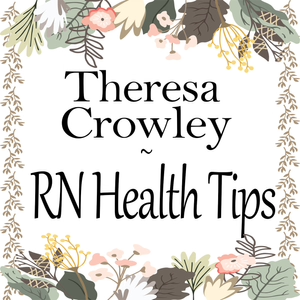
234. Navigating the Challenges of Caregiving: The Importance of Advocacy and Preparedness
03/14/25 • 32 min
As life throws inevitable challenges our way, caregiving for a loved one—especially during a medical crisis—can test our resilience and resourcefulness. In this episode, I share my personal experiences as a caregiver and senior living expert. From unexpected medical emergencies to the necessity of being a strong advocate, I offer practical insights and compassionate advice for anyone navigating a similar journey.
Chapters:
00:00 Preparing for the ER: Essential Tips
00:49 My Personal Journey: Navigating Senior Care
02:33 The Importance of Advocacy in Healthcare
06:49 Challenges in the ER and Hospital
10:32 Fighting for the Right Rehab
28:53 Final Thoughts and Takeaways
The Emergency Room Experience: Prepare with a “Go Bag”
Emergencies can happen when we least expect them, and being prepared can make a world of difference. I’ve learned firsthand that having a go bag ready can help minimize stress in critical moments. Here are a few essentials I always recommend packing:
- A warm blanket – Hospital environments are notoriously cold.
- Snacks – You never know how long you’ll be waiting, and food options may be limited.
- Personal medications – Always keep them with you in case of extended stays.
- Personal items – A phone charger, a book, or anything that provides comfort.
I’ve experienced the discomfort of long ER waits without the right essentials, and I can’t stress enough how a little preparation can make a big difference.
Advocacy: Speak Up and Be Persistent
Being an advocate is about more than just being present—it’s about ensuring your loved one receives the best care possible. Here’s what I’ve learned:
- Speak up—especially if your loved one cannot.
- Keep records—maintain a list of medications and treatments.
- Verify everything—double-check that medical staff administer treatments correctly.
- Ask questions—if something doesn’t seem right, don’t be afraid to push for answers.
I’ve had to advocate fiercely for my husband to receive the right rehabilitation care. It was a lesson in persistence and the power of informed communication. Being proactive can make all the difference in securing the best treatment and outcomes.
Building a Support System: You Can’t Do It Alone
One of the most valuable lessons I’ve learned is the importance of a strong support network. Whether it’s family, friends, or professional caregivers, having a team you can rely on is invaluable.
- Coordinate with family and friends—lean on them when you need help.
- Involve them in the process—make sure they understand emergency plans and care protocols.
During a medical emergency, my family worked together seamlessly, and that organization played a crucial role in ensuring the best care for my husband. I couldn’t have done it alone.
The Role of Knowledge and Experience
Experience is empowering—it equips you to handle situations that might otherwise feel overwhelming. My background in senior living gave me insight into making informed decisions, but I know that’s not the case for everyone. That’s why I always encourage caregivers to:
- Educate yourself—understand your loved one’s medical conditions and possible complications.
- Know your resources—from medical services to insurance benefits, being informed can save time and stress.
The more you know, the more confident you’ll feel navigating complex healthcare systems.
Conclusion: Advocating for Quality of Life
Caregiving isn’t just about managing crises—it’s about ensuring a high quality of life for those we love. That means understanding their needs, standing up for their rights, and finding silver linings even in difficult moments.
By sharing my journey, I hope to help others facing similar challenges find strength and inspiration. If you’re a caregiver, know that you’re not alone. With the right tools, determination, and support, you can make a meaningful difference in your loved one’s life.
For more insights, be sure to subscribe to the Aging in Style podcast, where I share more stories, expert advice, and practical tips for navigating caregiving and senior living challenges.
Thank you for listening, and I hope this episode provides you with strength and guidance on your caregiving journey.
Resources mentioned in this episode:
Get my new book, '
As life throws inevitable challenges our way, caregiving for a loved one—especially during a medical crisis—can test our resilience and resourcefulness. In this episode, I share my personal experiences as a caregiver and senior living expert. From unexpected medical emergencies to the necessity of being a strong advocate, I offer practical insights and compassionate advice for anyone navigating a similar journey.
Chapters:
00:00 Preparing for the ER: Essential Tips
00:49 My Personal Journey: Navigating Senior Care
02:33 The Importance of Advocacy in Healthcare
06:49 Challenges in the ER and Hospital
10:32 Fighting for the Right Rehab
28:53 Final Thoughts and Takeaways
The Emergency Room Experience: Prepare with a “Go Bag”
Emergencies can happen when we least expect them, and being prepared can make a world of difference. I’ve learned firsthand that having a go bag ready can help minimize stress in critical moments. Here are a few essentials I always recommend packing:
- A warm blanket – Hospital environments are notoriously cold.
- Snacks – You never know how long you’ll be waiting, and food options may be limited.
- Personal medications – Always keep them with you in case of extended stays.
- Personal items – A phone charger, a book, or anything that provides comfort.
I’ve experienced the discomfort of long ER waits without the right essentials, and I can’t stress enough how a little preparation can make a big difference.
Advocacy: Speak Up and Be Persistent
Being an advocate is about more than just being present—it’s about ensuring your loved one receives the best care possible. Here’s what I’ve learned:
- Speak up—especially if your loved one cannot.
- Keep records—maintain a list of medications and treatments.
- Verify everything—double-check that medical staff administer treatments correctly.
- Ask questions—if something doesn’t seem right, don’t be afraid to push for answers.
I’ve had to advocate fiercely for my husband to receive the right rehabilitation care. It was a lesson in persistence and the power of informed communication. Being proactive can make all the difference in securing the best treatment and outcomes.
Building a Support System: You Can’t Do It Alone
One of the most valuable lessons I’ve learned is the importance of a strong support network. Whether it’s family, friends, or professional caregivers, having a team you can rely on is invaluable.
- Coordinate with family and friends—lean on them when you need help.
- Involve them in the process—make sure they understand emergency plans and care protocols.
During a medical emergency, my family worked together seamlessly, and that organization played a crucial role in ensuring the best care for my husband. I couldn’t have done it alone.
The Role of Knowledge and Experience
Experience is empowering—it equips you to handle situations that might otherwise feel overwhelming. My background in senior living gave me insight into making informed decisions, but I know that’s not the case for everyone. That’s why I always encourage caregivers to:
- Educate yourself—understand your loved one’s medical conditions and possible complications.
- Know your resources—from medical services to insurance benefits, being informed can save time and stress.
The more you know, the more confident you’ll feel navigating complex healthcare systems.
Conclusion: Advocating for Quality of Life
Caregiving isn’t just about managing crises—it’s about ensuring a high quality of life for those we love. That means understanding their needs, standing up for their rights, and finding silver linings even in difficult moments.
By sharing my journey, I hope to help others facing similar challenges find strength and inspiration. If you’re a caregiver, know that you’re not alone. With the right tools, determination, and support, you can make a meaningful difference in your loved one’s life.
For more insights, be sure to subscribe to the Aging in Style podcast, where I share more stories, expert advice, and practical tips for navigating caregiving and senior living challenges.
Thank you for listening, and I hope this episode provides you with strength and guidance on your caregiving journey.
Resources mentioned in this episode:
Get my new book, '
Previous Episode

233. 7 practical tips when hiring a caregiver: Replay
So, you decided your loved one needs a caregiver...what’s next? Where do you find one? How do you choose the right fit?
I'm not only a senior living expert with 17+ years of experience in the industry, but I am also the primary caregiver for my husband who is a stroke survivor. I have the perspective of helping others find the right resources while navigating this reality for my own family.
With this unique position, I have gathered 7 tips for choosing a caregiver:
1. Understand the needs of your loved one. Do they have dementia? Find someone with relevant experience. Which tasks do you need help with? Also, figure out if you need someone only a few hours a week, or a few hours each day.
2. Know your finances. If you don’t have Medicare, you may be paying out of pocket. Consider what you can reasonably afford. Read your long-term care policy or contact your agent to make sure you understand financial limitations.
3. Involve your family. Make sure everyone’s on board with a caregiver. Communicate with them if you’ve been the caregiver up to this point and you’re burning out.
4. Decide on an agency vs. a private caregiver. Ask around at your church or in your social groups for recommendations. There are also franchises, but those tend to be pricier than local options and may require a minimum amount of time per day or week.
5. Ask others about their experience. Look at online reviews and see what people are saying about certain agencies.
6. Interview the candidate. Find a fit for your needs – and consider personality too! This could be someone that spends a lot of time with your family. Do you have a dog? Make sure they’re okay with dogs.
7. Communicate with your loved one and have a plan. It may be hard for your loved one to accept they need a caregiver. Present your plan and tell them it’s for their safety and your own well-being as well.
Topics discussed:
Hiring a caregiver / home care
Caregiver considerations
Long-term care provisions
Home care agencies
Private caregivers
Home care reviews
Caregiver rates
Takeaways from this episode:
Know if your loved ones have a pension, what their expenses are, and anything else that can impact your plan for hiring a caregiver.
Consider reverse-mortgaging your home to access more funds.
If your loved one is a veteran, there are different VA programs such as aid and attendance. Some agencies even have a contract with the VA to cover home care.
Big-name home care franchises tend to be more expensive, depending on your state, and can be $30-35 per hour. A private caregiver averages $25 an hour.
Home care may require a minimum amount of time with you – for example, 4 hours a day, 12 hours a week.
Have a plan in place before telling your loved one about home help coming in. Stand firm if adding help to your life is something you need to feel safe.
Resources mentioned in this episode:
Get my new book, 'Surrounded by Love: One's Family Journey Through Stroke Recovery': https://loriwilliams-seniorservices.com/book
To suggest a topic, be a guest or support the podcast, please email [email protected]
For more senior resources and to sign up for the newsletter, please visit:
https://www.facebook.com/LoriWilliamsSeniorServices/
https://www.instagram.com/theloriwilliams/
https://www.linkedin.com/in/theloriwilliams/
https://loriwilliams-seniorservices.com/aging-in-style-podcast/
Caregiver Burnout? These 6 Realistic Tips will help you support caregivers better:
Next Episode

235. Should grandma and grandpa move in with your family? Pros and Cons of this big decision: Replay
Should I move an elderly family member in with me? Or should we look into senior living?
This is a question I receive a lot. Before I dive in, it’s important to remember that every situation is different. Be sure to do what’s best for you and your family. But to gauge what’s right, I have a list of pros and cons for you to consider.
Pros:
· Living with your loved one can help connect the family. Some of my fondest memories are of my grandmother Emelita living with us. Multiple generations living together can create special memories, especially the kids and their grandparents.
· If everyone’s in agreement for your loved one to move in, it can be a great cost-saving measure. A common fear for many seniors is outliving their funds.
· If your loved one is healthy, they can support you around the house. Some of my memories with my grandmother involve her staying busy by folding clothes, cleaning the kitchen, and more.
· You can help remind your loved one to take their medications and keep an eye on them, especially if they have an existing health condition.
Cons:
· Moving a loved one in with you can increase your responsibility, sometimes significantly. It can impact your lifestyle and add new demands on your time and energy.
· If your loved one is at home and can’t drive, they may have limited socialization. I recommend signing them up at the local senior center and finding transportation. That way they can socialize with others and stay active and moving instead of sitting home all day watching TV.
· You and your members of the household may enjoy less personal space.
· Depending on the situation, burnout can be a risk. If your loved one has health issues, it can be stressful and exhausting.
Remember that in all situations, the dynamic of your household can change. And yes, it can be a big life change for all involved! Make sure everyone is on the same page in your household as you make plans.
Topics discussed:
· Caring for an elderly family member
· Pros and cons of living with older family members
· Dynamics of multigenerational homes
· Caregiver burnout
· Staying social as a senior
· Cost-saving considerations for seniors
Takeaways from this episode:
· Discuss the different considerations for opening your home to a senior family member with the other people in your household. If the family doesn’t get along, don’t do it.
· Consider your existing relationship with that loved one along with their current needs. Establish ground rules with the rest of your family if needed.
· Welcoming a family member into your home is a great cost-saving measure, but be sure to weigh that against your existing responsibilities and demands.
Resources mentioned in this episode:
Get my new book, 'Surrounded by Love: One's Family Journey Through Stroke Recovery': https://loriwilliams-seniorservices.com/book
To suggest a topic, be a guest or support the podcast, please email [email protected]
For more senior resources and to sign up for the newsletter, please visit:
https://www.facebook.com/LoriWilliamsSeniorServices/
https://www.instagram.com/theloriwilliams/
https://www.linkedin.com/in/theloriwilliams/
https://loriwilliams-seniorservices.com/aging-in-style-podcast/
If you like this episode you’ll love
Episode Comments
Generate a badge
Get a badge for your website that links back to this episode
<a href="https://goodpods.com/podcasts/aging-in-style-with-lori-williams-239526/234-navigating-the-challenges-of-caregiving-the-importance-of-advocacy-87372469"> <img src="https://storage.googleapis.com/goodpods-images-bucket/badges/generic-badge-1.svg" alt="listen to 234. navigating the challenges of caregiving: the importance of advocacy and preparedness on goodpods" style="width: 225px" /> </a>
Copy




